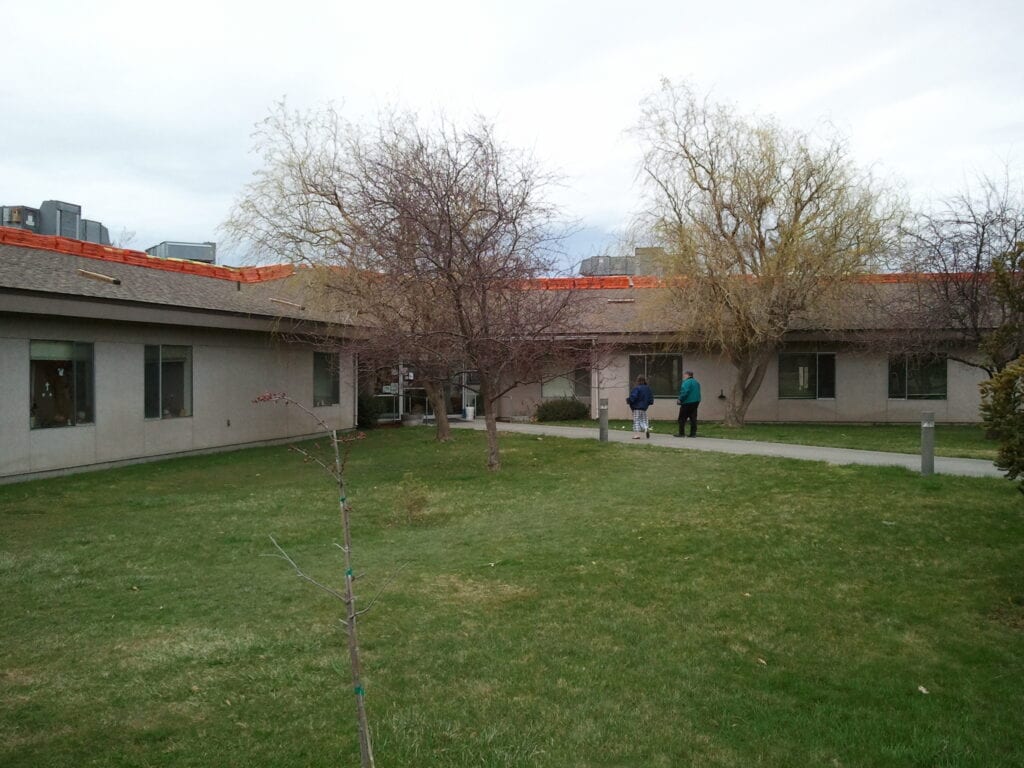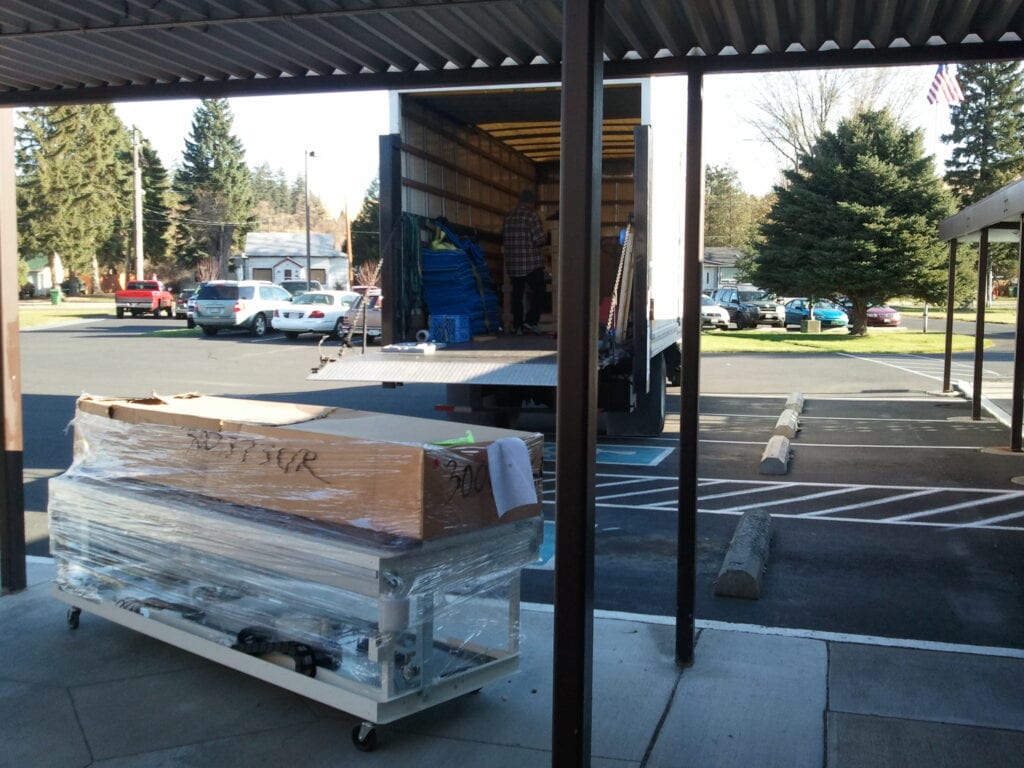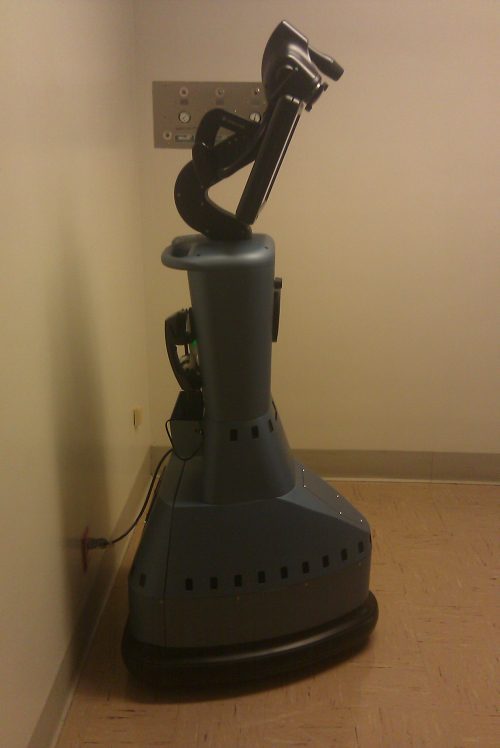Stories, from around you
Casework Installed
The cabinetry is installed in the exam rooms and the ceiling grid has been installed. We will have floors and a bulk of the electrical done next week! Thanks greatly to Blue Room Architecture, Walla Walla Electric, Leone & Keeble, and Apollo Heating.

Important information regarding Pertussis (Whooping Cough.)
Pertussis, or “Whooping Cough”, has reached epidemic levels in the State of Washington. According to the Washington State Department of Health, as of June 9th 2012 there have been 2,325 cases reported statewide, compared to 171 reported cases, over the same time period, in 2011. Infants and children have been hit hardest, both in number and in severity of the illness.
The majority of these cases have been in counties with larger cities. Walla Walla County has reported 20 cases to date. Most of these cases have been in the City of Walla Walla, but recently there have been cases reported in Prescott and Waitsburg. We have seen 2 cases, so far, in Columbia County, both cases were reported in May.
The Washington State Department of Health (http://www.doh.wa.gov/) has issued recommendations to help battle this epidemic. Columbia County Health District (CCHD) would like to inform the local community of these recommendations.
Pertussis is a highly contagious bacterial infection that causes a long-lasting cough which is often severe. Pertussis is spread by coughing or sneezing with symptoms usually starting 7-10 days after exposure, although symptoms may take up to 21 days to develop. The cough can last for weeks.
The bacterium that causes pertussis, Bordetalla pertussis, is sensitive to antibiotics. Unfortunately the damage done to the airways persists even after all the bacteria are killed; this is why the cough lasts so long. Therefore, prevention is the best defense against pertussis.
The illness usually starts with mild upper respiratory symptoms, similar to a cold. A cough develops, but as the other symptoms resolve the cough persists and may become more severe. The cough tends to come in spells or “paroxysms,” which are often associated with gagging or vomiting. The cough is sometimes associated with a “whoop” sound as the patient tries to catch their breath between coughs.
Anyone exposed to the bacteria can get pertussis, although immunization is very effective at preventing the spread of pertussis. Younger children and infants have smaller airways and often have less immunity and are at higher risk of complications. These complications include difficulty breathing, pneumonia, convulsions and even death.
While immunization is very effective at preventing the spread of pertussis, immunity wears off over time, so booster immunizations are necessary to maintain immunity.
An entire community can be protected against the spread of an illness if a sufficient number of the community are immunized. This “herd immunity” only works to prevent the spread of pertussis if 9 out of 10 of us are immune. Older children and adults not only protect themselves against pertussis by being immunized, but we also protect the infants and other at risk patients in our community.
Children are routinely immunized against pertussis by the DTaP vaccine, which immunizes against Diphtheria, Tetanus and Pertussis. DTaP is usually given at 2, 4 and 6 months of age, with booster immunizations between 15 to 18 months and between 4 to 6 years of age. If your child has not received five DTaP immunizations by age 7, or, if you are not sure about their immunizations, contact your child’s health care provider.
In the past only children were vaccinated against pertussis. Adults and older adolescents received Td booster shots, which immunized against tetanus and diphtheria, but not against pertussis. In 2005 a new vaccine, Tdap (not DTaP), became available in the U.S. for use in older adolescents and adults. Tdap immunizes against all three infections, tetanus, diphtheria and pertussis. In 2006 the U.S. ACIP (Advisory Committee on Immunization Practices) recommended that adults and adolescents receive Tdap instead of Td for their next routine “tetanus” booster, which is usually given every 5 to 10 years. However, Tdap may be given to adults regardless of the time interval since the previous Td dose. If you are an adult who has not yet received a Tdap booster, especially if you have close contact with infants, consider having a Tdap shot, even if you recently had a have had a Td (tetanus) booster.
Women who get Tdap before or during pregnancy pass the immunity against pertussis to their babies. The ACIP therefore also made a new recommendation that pregnant women get Tdap during their pregnancy (after 20 weeks gestation) unless they have previously received a Tdap vaccination.
To summarize, the current recommendations for pertussis immunization are:
1. Children should receive five doses of DTaP before age seven according to the routine immunization schedule.
2. Children age seven to ten who did not receive all 5 doses of should follow the ACIP “catch up” schedule, with Tdap given as the first “catch up” dose.
3. Adolescents age 11 to 18 years (preferably at age 11 or 12) should receive one Tdap. If not fully immunized earlier in life, additional “catch up” doses may be given.
4. Adults over the age of 19 should receive one dose of Tdap vaccine instead of Td for their next routine booster. However, Tdap can be given regardless of the interval since the previous Td dose, especially if the adult has close contact with children, i.e. parents, child care providers, health care workers, etc.
5. Pregnant women who have not received a dose of Tdap should receive one dose after 20 weeks gestation.
The Columbia Family Clinic and the Waitsburg Family Clinic have plenty of Tdap available, and are making efforts to immunize all appropriate patients. We encourage you to protect yourself, your family, and your community by making sure your immunizations are up to date.

Dr. Kyle Terry, MD
Waitsburg Clinic
St. Alphonsus use of the Telemedicine Robot.
In the near future, we will not differentiate between tele-healthcare and healthcare. . .it is all about taking care of the patient. The right technology, the right people, at the right time!!
Department heads in CPSI kick off meeting.
Hello hospital information system, we are so excited to meet you! Listening to a great project kick off presentation. CPSI has done this before and appears to be well organized. Construction of the Data Center has been completed and we are rapidly deploying technology components through-out the facility.
[easyrotator]erc_54_1377895101[/easyrotator]
- « Previous
- 1
- …
- 8
- 9
- 10













